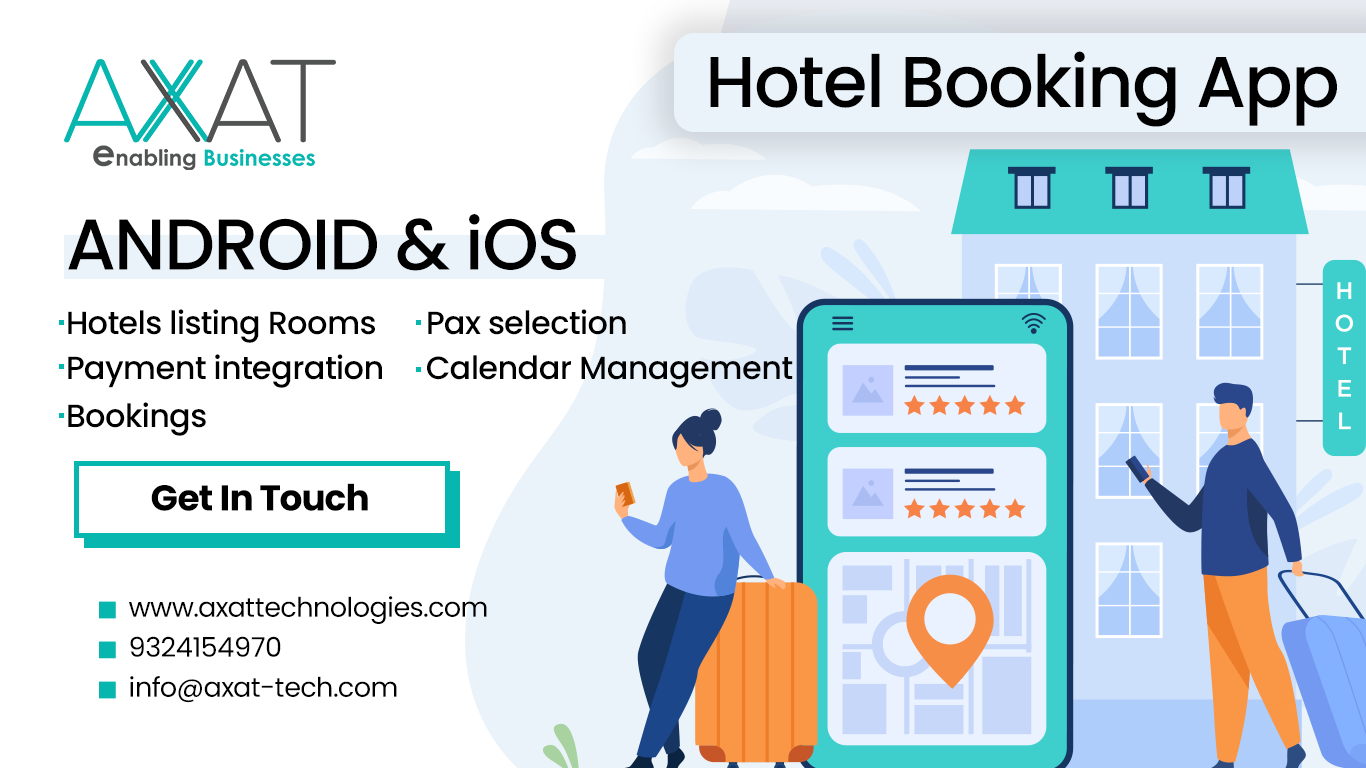The hotel sector has undergone a revolution as a result of the rise of Smartphone apps. Today, anyone can quickly and easily book hotels, flights, cars, restaurants, and other services using a mobile app. Additionally, more customers are changing their behavior toward online booking. 88% of customers in the United States alone decide to make a hotel booking online. Making a hotel booking app is now more economical and satisfying than ever.
Hotel Booking App Development
A digital platform that enables hoteliers and restaurateurs to manage bookings online is known as a hotel and restaurant booking app. With just a few scrolls, customers may see every accommodation and dining option available. Users can choose a destination by using filters for location, amenities, price range, and check-in and check-out timings. Users of the app can choose a location based on in-depth descriptions and images.
Essential features in Hotel Booking App
1. Signup
Today, one of the essential features of mobile apps is signup. This function authorizes users and enables the use of the app's features.
Also, the function makes it simple for you to establish a personal connection with a user and you can target individual users with certain offers or business-related plans. Furthermore, you must ensure that a new user can use your booking software as a guest user and study its main features and functionalities.
2. Searching
Your search function needs to respond quickly. In actuality, users should have simple access to data on hotels and their amenities. Users won't utilize the app if the search function is too slow. Because searching is a major component of many features, you must offer a variety of parameters and filters to make navigating simple. You may now provide filters like city, hotel name, and address in the Destination section, for instance.
3. Filters
Filters are helpful for addressing certain user needs. Users can choose from the various pricing ranges by using filters. Additionally, customers can choose a hotel based on ratings or utilize filters to use a specific location.
4. Booking
Any hotel booking app's main objective is to make it simple to find a place to stay. For a simple process, be sure only to include the necessary information and the fields that go with it. We highlight this because a booking screen with too many details typically results in a negative User experience.
5. Accommodation Details
Once a user inputs booking information, it stands to reason that he or she would want to look more closely at the accommodation of choice. Consequently, a screen showing accommodation information is essential.
Map, photo gallery, basic information (location, review, etc.), hotel policies & facilities, call-to-action button, share button, add to favorite button, and any other information you feel justifies your services must all be displayed on the screen.
6. Payment
After a user chooses a hotel booking, the app must enable payment and produce an invoice or receipt that includes the user's information. Two options—check out and payment gateway can help ensure a simple payment process for your hotel booking app. The visit helps to verify user information and to confirm user information. The check-out screen must also provide a last warning informing the user of the specifics of the accommodation.
Payment gateway: It is crucial that you include a payment gateway for your hotel booking app given the rise of UPI and online payment portals.
7. Cancellation
Regardless of the reason, customers typically need to cancel their bookings, so your app should provide a cancellation feature. When making a reservation, this gives the user a feeling of security.
You can also add further features, such as Last-Minute Cancellation, however from a business standpoint it is challenging to implement this use-case.
Process of Hotel Booking App Development
The steps for developing a hotel booking app are listed below.
Step 1: Determine Requirements
The specifics of your project, particularly the requirements, must be organized. To create an outline for a development plan with precise requirements specifications, collect detailed requirements, and perform a thorough assessment.
Step 2: UI/UX Design
A prototype for each screen is created by the UI/UX designer based on the requirements and specifications.
Step 3: App Development process
The app development team delivers the functionality after the prototype is built. Development is followed in this step by testing and deployment.
Step 4: Release the End-product
It is ready for release once the testing team has fixed all of the bugs and problems. The deployment of your hotel booking app is now complete. Additionally, you can collect user feedback once your finished product has been released and use it to enhance your features.
Step 5: Quality Assurance and Maintenance
Quality assurance and Maintenance are ongoing processes. Your hotel booking app has to be updated frequently. This will draw in more people and enhance your software.
Final Thoughts
No hotel can ignore mobile app development in the competitive market of today. The business methods of the hotel sector have changed as a result of the development of mobile applications. With the right planning and strategy, developing hotel booking apps is a great idea to implement in the hospitality sector.
Please feel free to get in touch with us at any time if you have any queries about creating a mobile app for the hotel industry. We would be happy to assist you.
